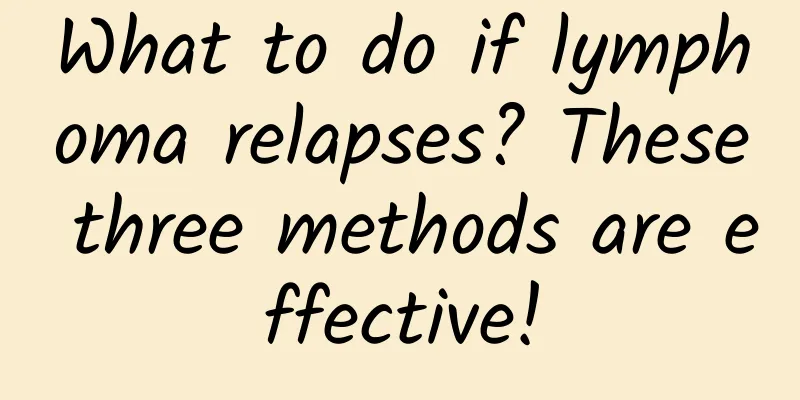Diet for patients with fatty liver disease

|
In today's society, more and more people suffer from fatty liver, which is caused by excessive calorie intake. If the heat in the body cannot dissipate quickly, it will accumulate in the liver and cause a certain impact on the liver. Therefore, in daily life, we should pay attention to exercise, eat a light diet, and avoid spicy and greasy food, so as to avoid the three high problems. So, what is the diet for patients with fatty liver disease? 1. Treatment principles for non-alcoholic fatty liver disease (1) Controlling calorie intake: The energy supply to patients with fatty liver should not be too high. Based on the patient's age and gender, appropriately and strictly control calories and adjust nutrient composition. The goal is to lose 5% to 10% of body weight and reduce energy intake by 25% compared to a normal diet. (2) Protein: It is appropriate to give 1.0-1.5g/kg of protein. A high-protein diet can protect liver function and promote the repair and regeneration of damaged liver cells. The intake of high-quality protein is very important for maintaining the balance of amino acids. It can also provide anti-fatty liver factors such as methionine, cystine, tryptophan, threonine and lysine, so that the lipoproteins synthesized in the liver can transport triglycerides out of the liver smoothly and prevent fat infiltration in the liver. You can choose foods such as skim milk, skimmed milk residue, egg white, fish, and lean meat from livestock and poultry. (3 ) Reduce carbohydrates and sweets. Excessive carbohydrates can be converted into fat, leading to obesity and promoting the formation of fatty liver in the liver. Carbohydrates should be provided mainly by cereals, without refined sugars, honey, juice, jam, candied fruit and other sweets and desserts. (4) Controlling fat and cholesterol. The essential fatty acids in fat participate in phospholipid synthesis, which enables fat to be transported out of the liver smoothly and is beneficial for preventing fatty liver. Fat also has the function of inhibiting the synthesis of fatty acids in the liver, but eating too much fat can increase energy, which is not good for patients. Therefore, an appropriate amount of fat is given, about 50g per day. Avoid trans fatty acids and increase ω-3/ω-6 polyunsaturated fatty acids in your diet. Vegetable oil does not contain cholesterol, but the sitosterol, stigmasterol and essential fatty acids it contains have a good degreasing effect, which can prevent or eliminate fatty degeneration of liver cells and is beneficial for the treatment of fatty liver. The intake of foods high in cholesterol should be controlled. (5) Supplement vitamins, minerals and dietary fiber. The liver stores a variety of vitamins. In liver disease, the storage capacity is reduced. If it is not replenished in time, it will lead to vitamin deficiency in the body. The diet should be a combination of coarse and fine foods, with more fresh vegetables, fruits and algae to ensure sufficient dietary fiber. Increasing the supply of vitamins and minerals can make up for the deficiency during liver disease, facilitate the elimination of metabolic waste, and also have a good effect on regulating blood lipid and blood sugar levels. 2. Treatment principles for alcoholic fatty liver disease (1) Abstaining from alcohol is the most important measure for the treatment of alcoholic liver disease. Abstaining from alcohol for 4 weeks can restore fatty liver to normal. (2) Strengthen nutritional support for long-term alcoholics. Alcohol replaces food in providing the calories the body needs, so protein malnutrition and vitamin deficiency are common. On the basis of abstinence from alcohol, patients with alcoholic liver disease should be given a high-protein, low-fat diet. If there are symptoms or precursors of hepatic encephalopathy, the protein diet should be restricted. In addition, the utilization, conversion, and storage of vitamins are impaired during ethanol metabolism, especially the general deficiency of B vitamins. Attention should be paid to timely supplementation of vitamins A, B, E, folic acid and trace elements. |
>>: Dietary taboos for intrahepatic hemangioma
Recommend
What to do if your baby has acute urticaria
Urticaria is a relatively common disease. General...
What is the cause of the itchy bumps on both sides of my fingers?
In daily life, people will always encounter some ...
What is the appropriate water temperature for physical cooling?
Fever in children is a very common disease. Wheth...
What fruits to eat for tonsil suppuration? You will know at three points
Some issues that patients with tonsillitis need t...
What should I do if I still itch after being stung by a bee 10 days later?
Generally speaking, after being stung by a bee, o...
Can tobacco leaves and salt water reduce inflammation?
It is said that folk remedies can cure serious di...
Sitting up unconsciously at night
When sleeping at night, some people suddenly sit ...
Six-month-old baby's legs are very weak when standing up
When the child is six months old, the adult can s...
How to diagnose favism
We can judge favism from the hemoglobin content i...
Is Artemisia capillaris dried in the sun or in the shade?
Artemisia capillaris is a common Chinese medicina...
What are the clinical symptoms of anaphylactic shock?
Anaphylactic shock is a disease that can endanger...
Is acne hereditary?
Acne is a skin disease caused by endocrine disord...
Symptoms of toothache caused by heat, three remedies to relieve toothache
Most people will experience toothache after getti...
Chinese medicine for replenishing qi and blood during menopause
As people age, the sex hormones in their bodies b...
The World Health Organization's ten health principles
The new concept of health proposed by the World H...









